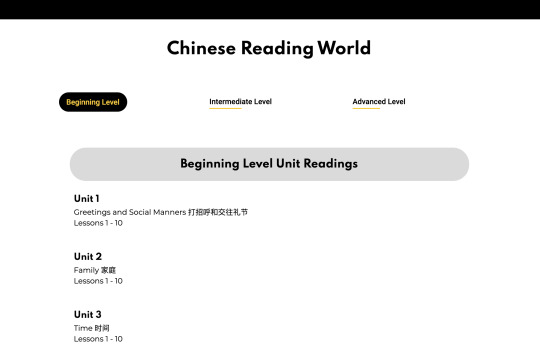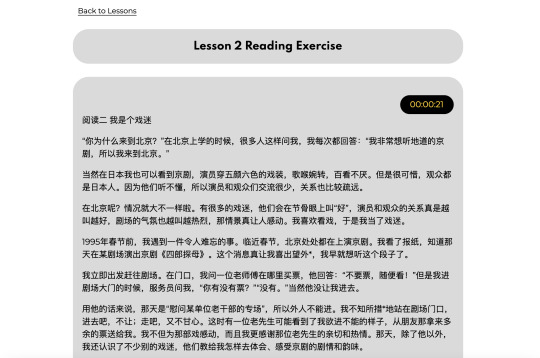Mandarin Langblr, Re-blogs: Get comfy in bed with some music and just stroll through for some more language knowledge。I’m not aesthetic enough to call myself official.
Don't wanna be here? Send us removal request.
Text
just a reminder that people who create fanwork do not owe you anything. writing fanfiction, drawing fanart etc is entirely voluntary and something that should be done for fun!! putting pressure on someone to put out the next chapter of their fic isn't helping anyone, especially since most fandom creators are students and/or have a job, and also just. have a life. they have friends and family and things to do. and to people who create content, thank you!! you're appreciated!!
8K notes
·
View notes
Text

Always wanted to know how to say your favourite nut in Chinese? (Also useful for Starbucks~)
48 notes
·
View notes
Text
Language-learning can be a hobby. If striving for perfect fluency is sucking the fun out of it, then fluency doesn’t need to be the goal
678 notes
·
View notes
Photo


HENRY MILLS, ONCE UPON A TIME Season 1, Episode 2: The Thing You Love Most
288 notes
·
View notes
Text
A Resource for Reading Practice: The Chinese Reading World

I wanted to share a resource for reading practice that I stumbled across recently. It’s called the Chinese Reading World, and it was a project led by the University of Iowa.
The site was put together from 2005 to 2008, so it’s not super up to date. However, there is a ton of content! Everything is sorted into 3 levels: beginning, intermediate, and advanced.

Each level has 30 units, and each unit has 10 lessons. The lessons begin with a vocab pre-test, then there is a reading with some comprehension questions. Lastly, there is a vocab post-test, which is the same as the initial test (at least for the lessons I’ve done so far). There’s audio for each lesson text, but unfortunately it can’t be streamed—you have to download it. There is also an achievement test at the end of each unit.
My experience has actually been that I already know all the words on the vocabulary tests, but the reading passages contain other words that I’m not familiar with.

So far, the readings I’ve encountered are not very long. This is nice since reading longer pieces can be frustrating at times. With shorter readings, you can just read 1 or 2 on some days and read more when you have more time/patience. I believe the readings are taken from Chinese newspapers.
Also, every unit has a theme. With 90 units total, there are bound to be themes that interest you. Example unit topics:
Directions and Asking Direction 方向和问路
Sports and Outdoor Activities 体育和户外运动
Chinese Music and Musicians 中国音乐和音乐家
Chinese Minorities and Local Customs 地方习俗和民族风情
Chinese Sports and Olympic Games 体育和奥林匹克
Contemporary Chinese Literature and Writers 中国当代文学和作家

The 3 levels also each come with 5 proficiency tests. They seem to be based on vocabulary knowledge, so expanding your vocab is clearly a huge focus of this site. The only thing I’m unclear is about is I’m not sure exactly when the proficiency tests are meant to be taken. After completing all units? Or are they spaced out so you are supposed to take test 1 after the first few units, test 2 after the next few, etc.?

I’ve started working my way through the advanced section this week. With 300 advanced lessons alone, it really feels like I have an infinite number of articles to go through!
2K notes
·
View notes
Text
54K notes
·
View notes
Text
How to learn vocabulary in a foreign language

Vocabulary is an essential part of language learning, and if your memory is not particularly good, then you might struggle with it. In this post I’m going to offer some advice on how you can learn new vocabulary in a foreign language!
First, I’m going to talk about where you should get your vocabulary from. When you are a beginner, there are three sources I think you should get vocabulary from. First, a textbook or online course, or various learners materials. Second, an app of some sort (like Duolingo, Lingodeer and Memrise). Thirdly, I would suggest gaining vocabulary from immersion. Do NOT memorise every word you come across, only the ones that you need to know. I also would not suggest using a frequency list to choose words to know. It is much better to learn vocabulary through context. Try writing down all the new words you discover in a notebook. When you are an intermediate learner, I would suggest focusing on extensive reading and listening (i.e. reading or listening to lots of content without looking up words you don’t know) rather than intensive reading and listening (i.e. reading and listening to content, and looking up every word you don’t understand). You could learn the vocabulary from a textbook, specification, immersion or various vocabulary lists from the internet. An upper intermediate learner might want to focus on intensive reading and listening, instead. An advanced learner might just absorb new vocabulary from advanced native material and conversations (e.g. textbooks made for native speakers, talking about politics, historical texts and dramas). At this stage, it would be handy to use a dictionary in the target language, instead of translating it. You can also look up synonyms of the word.
Use flashcards! Maybe create paper ones, or use apps like Quizlet, Anki and Memrise.
Create your own example sentences! It is important that you actually know how to use the word or phrase in a sentence, so try and write down or say a few sentences with the word in it. Make sure you get corrections!
Say it out loud! When you come across it, check the pronunciation with an application like Forvo, and repeat after it. Say it again and again, until you feel comfortable, and then test yourself on it.
Actually use it! When your speaking and writing, try and use as diverse a vocabulary as you can. Try and sneak in a recently learnt word into conversation, and don’t be embarrassed if you use it wrong.
Don’t use transliterations! They do not help with pronunciation at all. Memorise at least some approximation of the script, along with the pronunciation of each sound in the language, and learn the word using that instead of transliteration.
Test yourself both to and from the target language! This is important as you want to be able to both produce and understand the word.
Maybe use images instead of translations! It could help stop you from translating in your head.
Memorise set phrases! When you hear or read something which sounds good, then learn it. This will really enrich your vocabulary when you speak or write.
Sound it out to memorise spelling! Remember reading when you were a kid, and take on that kind of mindset. Try to over pronounce each syllable as you read it, and say it multiple times.
Look up words as you go! When you don’t know a particular word or phrase when speaking or writing, then look it up. Same when you’re reading and listening (this is how we learn words in our native language after all).
Write it multiple times! This also helps with spelling!
Read and listen a lot! Input. Is. Everything. So read and listen to as much diverse content as you can. It doesn’t matter if you don’t remember it the first time you see it, you’ll get it eventually. Imitate what you see yourself. Remember, more often than not we get our own speech patterns and vocabulary from input - think of how people who read more tend to have a broader vocabulary, even in their native language.
Regularly review! When you memorise a word, write it down, and later on test yourself on it. Try going through your vocabulary notebook once a month, or if that’s too much, then set up a system, like with flashcards and spaced repetition. Maybe write the next date you will review a particular list of vocabulary on the top of the page?
Thank you for reading this post! I hope it was useful to you!
314 notes
·
View notes
Photo

How to Improve Your Chinese Listening Skills? 🔊 PS: Learn Chinese with the best FREE online resources, just click here https://www.chineseclass101.com/?src=tumblr_improve_listening_image_081721
13 notes
·
View notes
Text
romanticize your life. i cannot stress this enough. use scented shower gel and shampoo, so you look forward to showers. go on walks and see how pretty the sky looks. notice the wildflowers on the roadside as you drive. light a candle when you get home to make your room smell good. notice & appreciate the little things in life. it won't cure your mental illness, but it'll make it easier to exist in this world.
105K notes
·
View notes
Text
10 Ways to Improve Pronunciation in 34 Languages
There are no shortcuts to perfect pronunciation, however there are some ways you can practise more effectively and improve your skills faster. Follow our ten top tips, start improving your pronunciation today and take a step closer towards your goal of perfect pronunciation.
Afrikaans Arabic Bulgarian Cantonese
Chinese Czech Danish Dutch English
Filipino Finnish French German Greek
Hebrew Hindi Hungarian Indonesian Italian
Japanese Korean Norwegian Persian Polish
Portuguese Romanian Russian Spanish Swahili
Swedish Thai Turkish Urdu Vietnamese

Keep reading
257 notes
·
View notes
Text
If you mourn the death of ancient languages but do not mourn the death of innocent black people, you need to reevaluate your priorities.
If the burning of the library of Alexandria or of Notre Dame brings you to tears but do not care about the fires started by desperate and grieving protesters demanding justice, you need to reevaluate your priorities.
It is okay to love and be passionate about things from the past, but we must also care about our present. 2020 will someday be history too. Don’t let yourself be on the wrong side of history. Don’t ignore the racial injustice that is all around us.
11K notes
·
View notes
Text
Narrating Events in Chinese
**This is adapted from a handout my Chinese teacher gave us.
Beginning of past events
(刚)开始的时候:at the very start Less formal, emphasizes the very beginning of the event 刚开始的时候,我觉得很内向。
一开始 :at the very start Emphasizes the very beginning of the event
最初:at first, originally, initially
起先:at first, in the beginning 起先,我不同意这个想法。
起初:originally, at first, at the outset
Sequential order of past events
以后:after, later, afterwards, following, later on, in the future Indicates a point after a point in time/a period after a period of time, can be used alone or after some time phrase (五年以后、毕业以后) OR just means in the future 上大学以前,我们以为大学生很轻松。上大学以后,我们才发现了大学生活每天都很忙。
从那以后:since then 从那以后,他们成了无话不谈的好朋友。
此后:after this, afterwards, hereafter Means 从这以�� but more formal 此后,两个人失去了联系,再也没见过面。
然后:after, then, afterwards, after that Indicates an act that happens after a certain act or a certain condition. It is often used along with 先 to show the sequence of events 昨天我先去银行取钱,然后去书店买了三本书。
Keep reading
394 notes
·
View notes
Text
“Try to learn to breathe deeply, really to taste food when you eat, and when you sleep, really to sleep. Try as much as possible to be wholly alive with all your might, and when you laugh, laugh like hell. And when you get angry, get good and angry. Try to be alive. You will be dead soon enough.”
— Ernest Hemingway
9K notes
·
View notes
Text

My version of aesthetic language notes that you can barely read📝💀
2 notes
·
View notes
Text
““Language is not a genetic gift, it is a social gift. Learning a new language is becoming a member of the club – the community of speakers of that language.””
— Frank Smith, psycholinguist
499 notes
·
View notes
Photo

“Society exists only as a mental concept; in the real world there are only individuals.” - Oscar Wilde
11 notes
·
View notes
